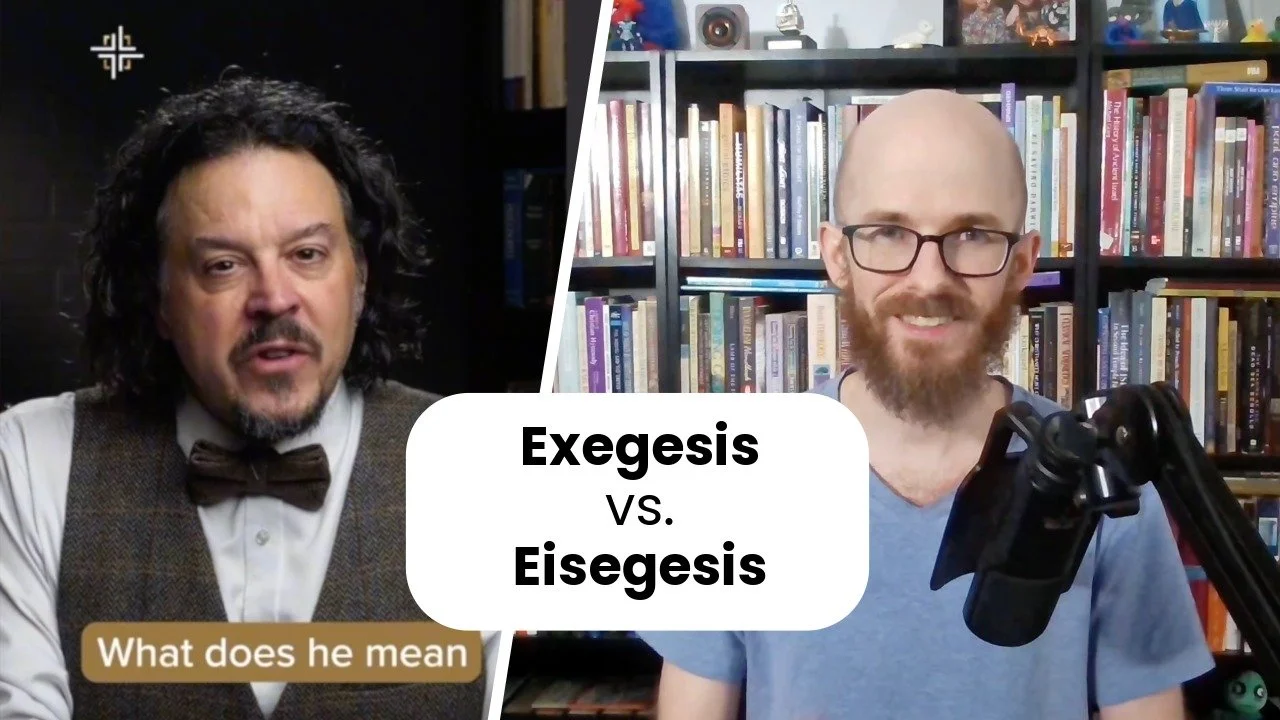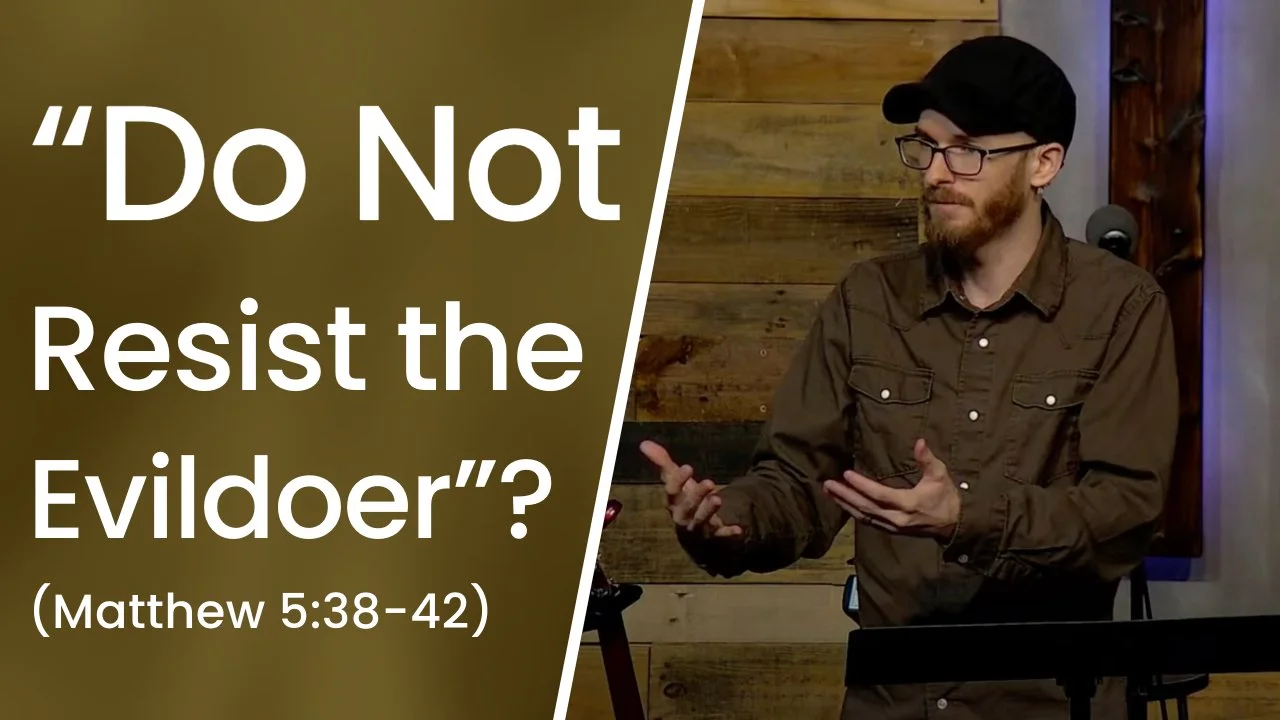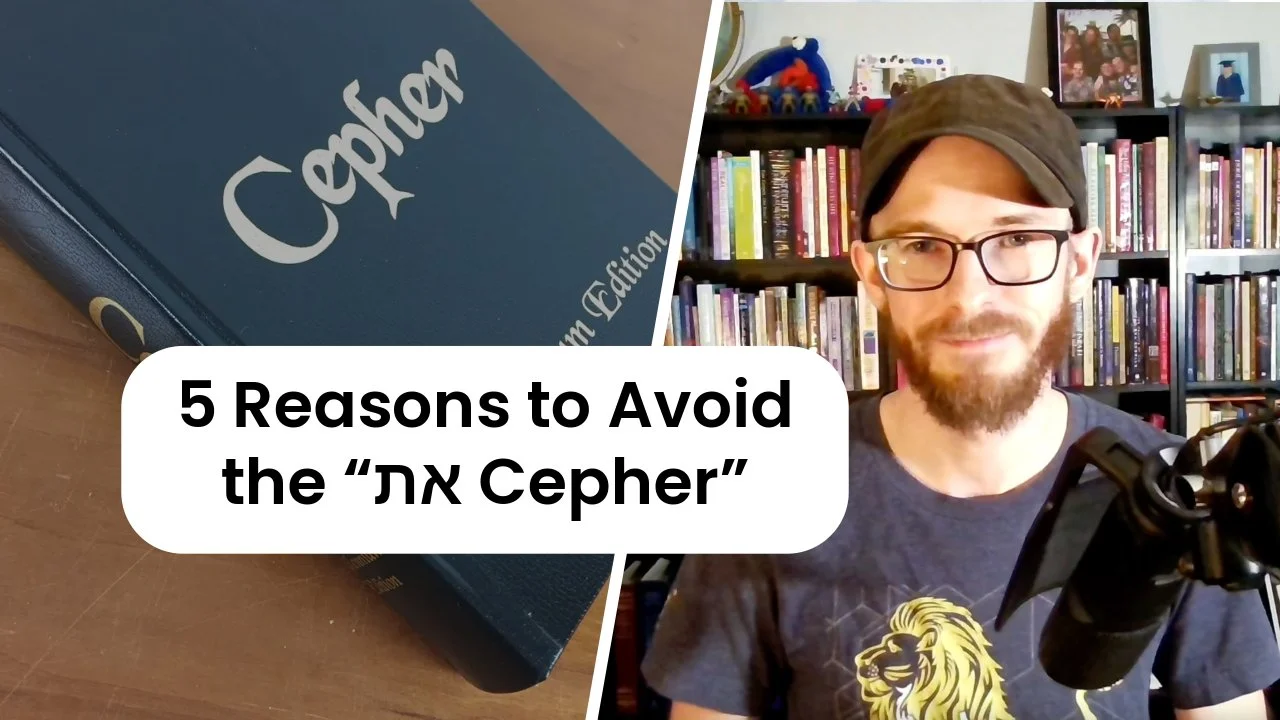In this video, we look at R. L. Solberg’s approach to Scripture by focusing on his mishandling of Matthew 5:17–20. Rather than considering the immediate context, Solberg ignores it completely and appeals to other, unrelated texts to argue that Jesus could not have meant what he said in this passage. This eisegetical approach raises serious doubts about his reliability as a biblical interpreter.
Can Christians Support Hanukkah? | A Response to Dale Partridge
Candace Owens is Wrong About Christians and the Sabbath
Are There Anti-Jewish Passages in the New Testament? (Interview w/ Dr. Igal German)
Do the New Testament writings condemn Jews and Judaism? Sadly, there are professing Christians today who claim they do. To address this error and shed light on several often-misinterpreted passages, I’m joined by Dr. Igal German, a Messianic Jewish scholar and apologist. I’m grateful to have Dr. German with us to tackle this important topic.
The Messiah's Name is Not "Yahusha"
What is Pronomian Theology?
Pronomian theology, or pronomianism, is a way of reading Scripture that affirms the ongoing authority of God’s Law given through Moses (Torah). In this video, we explore how pronomianism contrasts with antinomianism and how various Christian communities like Messianic Judaism and the Seventh Day Baptists approach the Torah today. If you’ve ever wondered about the relevance of commandments such as the Sabbath, festivals, and food laws in Christian ethics, this short video will give you a basic introduction to pronomian theology.
The Jerusalem Council: Applying the Torah to Gentiles (Acts 15)
Is the Torah (Law of Moses) relevant to Gentile followers of the Messiah? Many say no, citing the Jerusalem Council event in Acts 15 as proof. In this message, David Wilber challenges that common interpretation through a careful reading of this passage within its historical and theological context. Far from rejecting the Torah, we’ll see how the apostles wisely and faithfully applied the Torah to Gentile believers joining the Messianic Jewish community.
Set Free on the Sabbath (Luke 13:10–17)
In the Gospels, we see that Yeshua (Jesus) often chose to heal people on the Sabbath. Though some interpret these occasions as a challenge to the Sabbath itself, Yeshua’s words and actions actually reveal what true Sabbath observance is supposed to look like. In this message, David Wilber focuses on a specific example of healing in Luke 13:10–17 and what it teaches us about Yeshua’s perspective on the Sabbath.
Keep Torah Better Than the Scribes and Pharisees (Matthew 5:20)
Jesus taught that the Law of Moses is not abolished (Matthew 5:17), that it will remain in force for as long as heaven and earth endure (Matthew 5:18), and that his followers must obey and teach it (Matthew 5:19). Now, in Matthew 5:20, he demands that his followers surpass the righteousness of the scribes and Pharisees. But what does it mean to surpass their righteousness? In this video, we will explore this question in detail.
Do and Teach the Torah's Commandments (Matthew 5:19)
After declaring that he did not come to abolish the Law and the Prophets but to fulfill them, and that the whole Law of Moses will remain in effect as long as heaven and earth exist (Matthew 5:17-18), Jesus urges his followers to obey and teach the Torah’s commandments (Matthew 5:19). In this video, we will look at Matthew 5:19 and unpack Jesus's warning against disregarding the Torah's commandments and his call to be great in the kingdom by doing and teaching them. We will also address the claim that Jesus was not referring to the Torah's commandments in Matthew 5:19 and explore why the context contradicts that interpretation.
Sin Sacrifices: A Question That “Topples” Torah Observance?
Messianic Jews and other Pronomian (Pro-Law) Christians believe that the Law of Moses is a vital part of our faith practice. However, not everyone agrees with this perspective. One prominent critic of this theology claims to have devised a single yes or no question that “topples” what he calls "Torahism," by which he means the biblical doctrine that the Law of Moses remains in effect. In this video, we consider this question. (Spoiler alert: Messianic Jews and Pronomian Christians won't be chowing down on pork bacon anytime soon.)
Until Heaven & Earth Pass Away, the Law of Moses Will Stay (Matthew 5:18)
Did Jesus bring the Law of Moses to an end, or did he want his followers to obey it? As we learned in our previous video, Jesus makes it clear in Matthew 5:17 that he did not come to invalidate the Law’s authority but rather came to teach and demonstrate the correct way to obey it. This statement alone is sufficient to dismiss any claims that Jesus did away with the Law. But he doesn’t stop there. In Matthew 5:18, he goes on to declare that the whole Torah will remain as long as heaven and earth exist. In other words, it will not be going away any time soon. In this video, we will delve into the significance of Jesus’s statement that nothing will pass from the Law “until heaven and earth pass away” and “until all is accomplished.”
Rabbi Tovia Singer is Wrong About Paul's Position on the Law of Moses
In a recent video, Rabbi Tovia Singer argues that Paul detested the Law of Moses and taught that Christians don’t need to keep it. However, Rabbi Singer’s objection relies on an outdated, antinomian reading of Paul, which does not accurately reflect the true Paul depicted in the Pauline epistles and Acts. In this video, we address Rabbi Singer’s claims and clarify Paul’s stance on the Law of Moses.
What it Means to Fulfill the Law of Moses (Matthew 5:17)
What did Jesus teach about the Law of Moses? Did he say that he came to bring it to an end, or did he want his followers to obey it? Matthew 5:17-20 is a key passage that speaks to this question. In this video, we focus on verse 17, where Jesus says, “Do not think that I have come to abolish the Law or the Prophets; I have not come to abolish them but to fulfill them.” We explore what Jesus meant by the terms “abolish” and “fulfill.”
"Do Not Resist the Evildoer"? (Matthew 5:38-42)
How should believers respond when someone wrongs us? In Matthew 5:38-42, Yeshua offers a surprising answer to that question. He references the “eye for an eye” principle found in the Torah, and then proceeds to explain how he expects his followers to respond when they are slapped, sued, and mistreated.
How Jesus Fulfilled the Law of Moses (Matthew 5:17-20)
What did Jesus mean when he said that he came to "fulfill" the Law of Moses? How did Jesus expect his followers to relate to the commandments and surpass the righteousness of the scribes and Pharisees? In this sermon, David Wilber explores Matthew 5:17-20 and Jesus’s explanation of his mission in relation to the Torah.
The Messiah’s Name in Hebrew
How do we know for a fact that the Messiah’s name in Hebrew is “Yeshua”? How do we know for a fact that modern versions of the name that are popular on the internet (Yahusha, Yahshua, Yahushua, etc.) are inaccurate? One establishes these facts by simply looking at the way the name appears in the Hebrew and Greek texts of the Bible.
5 Reasons to Avoid the “את Cepher” Bible
Recently, a “Bible” known as the את Cepher has been gaining popularity among some believers. It incorporates several non-inspired books in its collection, contains numerous inaccurate transliterations and translations, and plagiarizes Wikipedia and other sources. In this video, I explain why you should avoid this “Bible.”





















